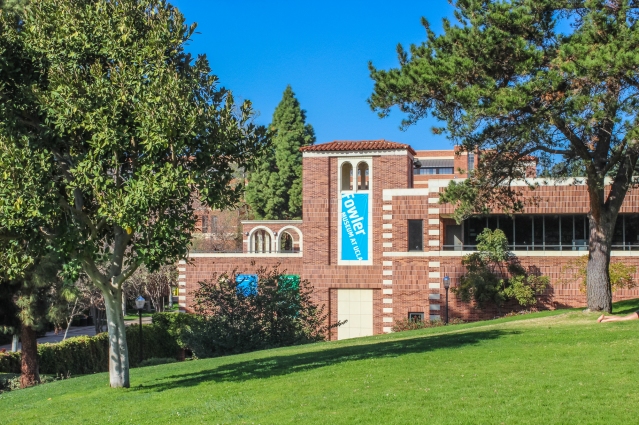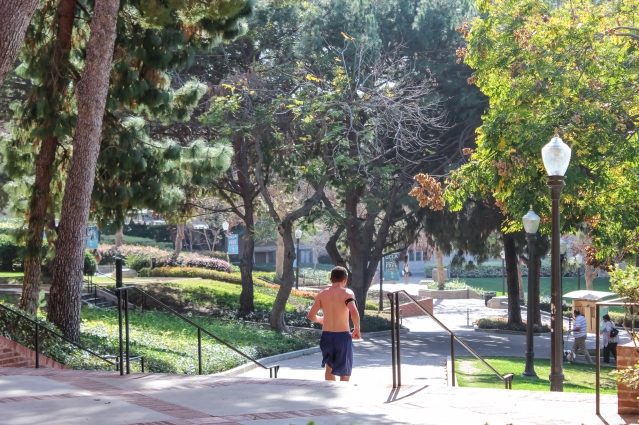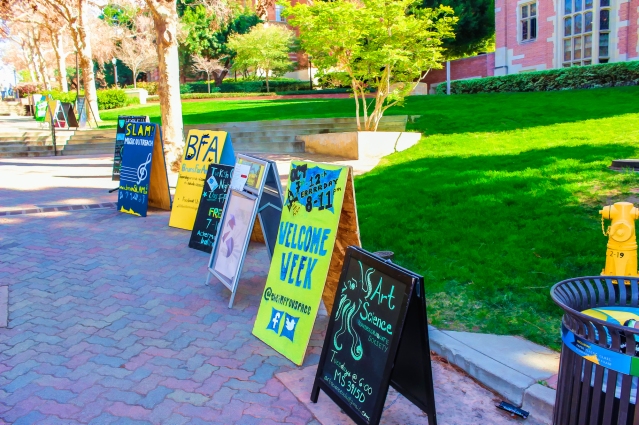Appeal and core
This month I have been on my own ‘listening tour’, as I am learning more about you, my ever expanding community, and your approach to the same issues that interest me. 😀 What amazes me is that everyone I know was talking about the perils of online interaction this week.
Tangentially, I was watching one of our 2016 hopefuls sitting at a table, chatting with students and teachers on Monday. Education as well as perception of personalities have been on my mind for quite some time and this is the week I will be talking about both.
The other thing I want to touch on briefly is the purpose of this blog, what motivates me, why I am here (I heard the candidate discuss this and it seems like a good thing to clarify on a blog). This will be a topic that unfolds as we sit at this virtual round-table — which is the way I visualize my spot and you visiting. I see us when we are here on my blog as a community of which I am merely a member. We are friends when we get together here — and by the way, I don’t see you as virtual. You are real human beings with feelings and ideas and so am I.
There are many ways to approach this subject. Since I want this blog to have a variety of posts, some ‘serious’, some merely entertaining, I may reorganize it so there are tabs for different types of discussions. That way people who want to read what I have written on Southern California, baking or gardening or knitting, etc., can simply head to that area and avoid political or academic editorials.
That said, and before I get into a discussion on what I meant when I wrote the title to this post, let me just say a few words about what you can expect when you come here, since I truly want to prompt discussion, regardless of whether you agree or disagree with anything I say or with me.
First, what you won’t encounter: sacred cows, land mines, hot-buttons, hair-triggers, traps, and eggshells that would make you tremble at the prospect of treading in the wrong place, violating some unspoken rule, wounding fragile feelings and incurring wrath and abuse. It won’t happen and here’s why: you are my guest. You are busy and yet you took the time to stop here and react to something I have written. What a privilege for me — I mean that sincerely. I hope you have noticed that I am pretty respectful when I come to your place too, always with a gift in hand in the form of positive reinforcement and a compliment, even if I don’t understand or agree with you on every thing you write. I always try to find something kind to say.
And who am I, that I should sit in judgment of anyone else? Among true friends, judgment can be laid aside.
In a nutshell: if someone can take offense at a progressive softy like me, then something else is likely operating. Projection, for example. Perhaps the way we are reading one another’s words creates whatever impression we believe we are getting. Often, we have areas in which we are already sensitive and merely a few simple words touches them off. We are no longer really listening to the other person, but dredging up old hurts and vulnerabilities. If we were speaking with one another, we would likely get the spirit in which those words were intended. And may still not like them. That’s fine, but at least we would be present in the moment. Writing is limited. That is why I go to such lengths to be nice.
Anything I say here, is simply my opinion. My opinions can be: fill in any adjective you like. But, I don’t fall in love with myself and my ideas. I may not be enlightened yet and I have my share of hang-ups, but low self esteem and insecurity or overblown/fragile ego and belief that I know it all are not among them. I will probably give you a bit more background on my life and experience in my field and related disciplines, in an upcoming page that fleshes out my profile. But one thing I hope you will never see here is regression to anger, pettiness, spite, puerility or paranoia.
You are welcome to be yourself here! If my training hasn’t given me the ability to be accepting and kind — no matter who you are and what your issues may be –, then I wasted my time and my parents’ money. 🙂
I attempt to take a Socratic approach to every subject. That is the way I was brought up, trained, and frankly in my estimation indicates true intellectual curiosity. I question everything, including my own assumptions. No one person has a lock on any topic, I don’t care what it is and what we think we know. Being smug is intellectual death.
What do you care about my opinion anyway, as long as I express it with a modicum of humility? I try not to take myself too seriously. If we are healthy-ish we can handle a few unsettling ideas. But if anyone is seeking groupies, they would probably be happier elsewhere — that’s fine! I treat everyone as equals. I don’t want to be on a pedestal and I am not going to go out looking for idols to worship either.
So below is my point on the concept of core and appeal. Core can mean so many aspects of life: central beliefs, the heart of any matter, the most important or fundamental values, and so on. Or it could refer to a group of people who make up the inner structure of a movement or organization or cultural institution (in the social scientific sense of that term).
Those cores are all relevant and I have talked or will talk about them in one way or another. As a behavioral scientist I am fascinated by people’s belief systems and how they develop, function, and change over time. I like to think of myself as growing and changing and improving. Hopefully, right?
The core I am focusing on this time — and only briefly — is the philosophy behind the ‘Common Core’ initiative. Primarily because it is such a pivotal yet explosive issue now. And it doesn’t need to be.
I am not going to say, it ‘should’ or ‘shouldn’t’ be either. There is another thing I am trying to purge from my intellectual lexicon, what is ‘supposed’ to or ‘ought’ to be. Instead, I think it might be useful if we used instead, ‘I would like it to be’, xyz, etc. That is what we really mean. When we use any of those value-judging words we really mean that we have certain preferences based on our own view of the world and want everyone to come around to our way of thinking. There are 7 billion + people on this planet. What makes any one of us think every one of them should subscribe to our belief system? Or we to any one of theirs?
I think for myself. I am fairly sure that decades of thinking on certain topics qualifies me to analyze and perhaps venture an opinion on some of them. On some of them, I am pretty thoroughly educated or have deep experience, both with hands-on direct contact with the issue and the complex of factors in which it is embedded, as well as extensive intellectual or mental exercise on the topic, whether positive or negative. But, it still all boils down to my conclusions, preferences, opinions. I have very strong convictions but until I am totally awake and aware, I will always see them as a work in progress. And yours may be just as valid and true as mine.
For example, I think I am an inclusive person. I grew up in a diverse environment, albeit with some advantages over which I had no control. When I woke up one day and saw that I was pretty well off in this world, I decided I had to go out and seek those who did not have the same luck of birth. That is what I have done from that day to this: sought out those who were in need, tried to understand them, and when possible, to do something to make their lives better.
So, back to the so-called concept of a common core. This is merely my opinion, based on my history, including my background, experiences and study.
Every child would likely do better in life if s/he were able to read, write, calculate, speak, analyze at a level that an average local university requires for doing the course work offered.
That’s it!
Now, is that controversial? Maybe. We could argue that, were you to simply leave school at any point after the third grade in the average school anywhere in the US, that you might progress farther in the direction of your own goals from the age of 9 than you would have, had you stayed and gone on through grade 16. I have no idea of any credible research done on this, but if you do, feel free to share it. There is reason to believe that the earlier you have exposure to certain basic skills and the longer you work on refining them, in a formal setting like the organizational environment we term ‘schools’, the greater your lifetime earnings are projected to be, the longer you are likely to live, and the more satisfying your daily existence. I am not wedded to that, but it is probably now a given.
We can also debate the best way to ensure that those core skills and achievements are developed in any given child to the point that they are able to choose from a wider range of options when it comes to moving forward in the realm of academia. Personally, I am not a subscriber to testing as it is currently done. There are other methods for assessing individual student performance. These methods are more teacher-intensive. But, were they to be implemented in lieu of the eight hours of yearly standardized testing now being administered, time would be released back to the school day and year for the arts, physical education and recess. Yes, recess, an important part of a child (and adult’s) day.
There is also a coherent body of behavioral law that has been devised by theorists and investigators along the lines of Jean Piaget and others of almost equal stature in the area of child development that suggests a fairly universal — human species-wise — sequence to the course of growth during the first 18 to 21 years of life. If the environment in which we spend those first 18 years supports that sequence in an appropriate way, we are more likely to succeed according to some parameters, like those I touched on above.
Again, the idea behind Common Core was to have the states create a set of standards that would guide local schools and help them provide their students with the skills that would be expected of them, should they wish to go on to college. Please note the word: local.
This means that if you live in rural, Upstate New York, where I was an undergrad, you might want those standards to include agriculture and all the many necessary skills, practical, theoretical, and generative, to attend a husbandry program, for example. Not that no one in Upstate New York does anything but farm, but farming has been an integral part of that culture and social system for hundreds of years.
That ‘core’ set of skills and abilities might be very different if you are going to school in Silicon Valley, California or the Maine border with Canada. It would be silly to have someone from Napa Valley telling a school district in Pittsburgh what to teach in school. Yet both would easily agree upon their respective proposed Core talents and achievements, for their own neck of the woods.
Everyone agrees that this will be a topic for argument over the next many years because we have now and have had for a long time, children who cannot get into the advanced institutes of higher learning, because their elementary and secondary schools did not prepare them as a group or as individuals for that competitive winnowing process.
If I were Empress of the United States, I would collect a group of people to create a simple framework to send out to the states for consideration in creating their common core guidelines for local curriculums. That is in fact what was done, on a bi-partisan basis, 25 or so years ago, with the 50 or so governors. Your state common core curriculum probably looks different from mine.
Is that radical? I hope those of you who are upset by the notion of a common core will share your views here.
I would guess that most, if not all of us, adults, want to give every child every opportunity to realize his or her dreams, whatever those are. That is one reason, for example, I love Waldorf Education. Rudolf Steiner stated that education was just that, “to lead out” (from the Latin educare), to help bring forth whatever is already inside each child, creating an environment that offers the child freedom to be whoever s/he is and to express it safely and completely.
Here is the appeal part of this post. I ask, no invite, you to come here, express yourself freely on this and other topics, be mindful that some people who visit this blog (bless every one of them) have differing points of view and perhaps tender feelings, I don’t know, and proceed accordingly.
Until we are all conscious, we will have to stumble around blindly, trying to figure out the best way to navigate with the map we ourselves create, since we weren’t bundled with a manual.
I’m not fishing for compliments here and if you think I have been too harsh, you are encouraged to say so.
It’s your turn. Feel free to have at it. ❤
Images: Beth Byrnes, UCLA















Right then..my two bobs worth as we say. I had a fortunate upbringing, not wanting or needing for anything (though when both my brother and I went to a private school I was pulled out after a year as mum and pop were finding the financial strain a little much) why me..because they thought the men are better off having an education…ok old school believes 😊 my brother worked with my pop in his business for many years, then when pop retired, my brother didn’t have any skills to speak of.
Me? l left school at 16 or was that 15.. I can’t remember ~ smiles, but that didn’t stop me. I started at and ran my own importing business. Importing electrical components for companies in Australia and was very successful at it, till the Internet arrived and put a damper on it! Later on after closing it down, I worked in offices, till I decided to become a Celebrant at the young age of 58…. Have I gone off track? I like your posts, sometimes admittedly, I leave for a while as I need time to read and absorb. You are very beautiful and intelligent woman and I appreciate your honesty in what you write and also your kindness in my posts. So thank you my friend. 💜
LikeLike
First of all, I hope I don’t strain our friendship with long posts. Since I tend to write only once a week, I take a bit of liberty and say everything I think on a topic. So, most importantly Jen, thank you sincerely. ❤
I don't know about Australia, but there is a raging debate here about standards. We had a failed program called 'No child left behind' that rewarded schools for achieving local goals. What happened was they lowered the standards so they could report that they were successful, graduating children that couldn't read, write or do math, just to get Federal money. That was replaced by the Obama administration with a 'Race to the top/Common Core'. Here some people perceived it as the Washington DC crowd telling them what to do and they immediately objected. I think they misunderstand the programme.
Anyway, I do believe people can succeed without extensive education. We see it all the time. My paternal great-grandfather had no formal education whatsoever but taught himself to read, write and do math and ran a successful business all his adult life. He probably made more money that way, than had he gone through college. It can be done.
You are to be commended for all those achievements. You are an entrepreneur and that courage and ability paid off. Clearly!
I just worry that people react to ideas before they actually know what the concept is all about here. Everything is turned into a political fight nowadays. I hope that is not happening in Australia.
You are always kind, Jen and I appreciate that. I hope I continue to be honest but considerate. That is my aim and after all, who am I?
LikeLike
In the words of Arnie, ‘I’ll be back!’ I hate shopping. 🙂
LikeLike
You are the best, Anne-Marie! xx 😀
LikeLike
No you’re not straining the friendship.
No we don’t have the same system in our schools, mind you it’s been a while since myself or my girls went to school, and I’m afraid I don’t really keep up.
We don’t seem to have the political battles as over there, but we still have our nutters with their not so brilliant ideas..
Who are you? Did you read the bottom of my post 😉 💙
Ps As much as I love poetry and my chat posts, I do enjoy discussing various subjects, but I am the first to admit, I’m not scientifically or politically savvy, so I’d probably fall on my face!
LikeLike
I did read that — you are generous. I wish my world were filled with loving people like you Jen. But, I want to welcome all types of people so I will just relish words like yours and be grateful that anyone thinks well of me. xx
We cannot seem to avoid this. Our news media harangue us relentlessly with political warmongering. I am fairly sick of hearing about it, but the policies and programmes being implemented are affecting everyone here, as well as the world. If we get things wrong, all 7 billion people suffer. I am not sure we deserve this ‘honour’.
I wish I were a poet. It would make this blog sing more and croak less, LOL!
❤ ❤
LikeLike
I’ve been having a mull on this as promised, Beth, trying to figure out how to keep my comment succinct. Not known for it. 😉
I think my own teaching has changed over the years as I’ve come to find better ways to allow for deeper learning and discovery. My attitude and belief in what education should be has not changed.
I think of every child as an individual with potential I may only initially know a little of.
My job, as I see it, is to first of all make sure the children in my care feel loved and valued while we explore what a) they need to learn and b) what they can discover for and of themseves in the process and c) the essential life skill of questioning. Question everything. Seek ways to find out, discover the methods that work for you.
In the primay sector, my main role is to ensure the children from age 4 or 5 and onwards have a sound and thorough grounding in phonics. Without that the rest is a major chore for them. I’ve been using for some years now a programme of synthetic phonics that works a treat and fast tracks learning of all essential codes. My main bugbear here is that not everyone uses it or puts sufficient emphasis on phonological knowledge and that can make for big gaps in the process and hence ability of children to read/write/comprehend effectively. So that’s a biggy for me. Huge. And it’s my job, and pleasure, to make sure that it’s a fun experience learning them.
Literacy and numeracy are the essentials. Absolutes. But education is so much more besides. In Scotland a fair few years ago ‘A Curriculum for Excellence’ was introduced to liberate teachers and children from the more prescriptive, timetabled approach that had held sway for a number of years. ( I hated it! Very little room for manoeuvre.)
As far as testing goes, I personally carry out baseline assessments in reading, spelling and numeracy as a means of identifying need and directing my teaching. It’s not required but it is a helpful measure of growth and learning in specific areas. For example, I tested all my kids in August within a few weeks of the start of the term and then again in February. Every child, every single one, had made progress in their learning, some by phenomenal amounts. One of my boys came into my class with a reading age of 7 when he was six. He has tested at age 9 now. The phonics programme works. Every child has grown by, at the very least, the number of months that they have been at school. One or two with learning difficulties have achieved only the number of months but all others have exceeded that.
I say this to emphasise the programme used and the positive encouragement success breeds. That, of course, is only one measure used, a standardised means of identifying difficulties. Ongoing assessment and knowlege of each child’s strengths and weaknesses is paramount.
I love these kids like my own, want for them what I want for my own. Unfortunately, I have been disappointed at times with the teaching my own children have received, attitudes and methodology more in keeping with lectures than primary or secondary education.
For the most part here, though, I’m happy with how our children are taught.
If schools fail or teachers fail their children or the system diddles the figures and undervalues the core of learning to manage success rates they should be held to account. I’ve no time for poor teaching or massaged figures. This is our kids’ education we’re talking about. We owe them.
Also, as an aside, Scotland went against current UK legislation and abandoned any fees for higher education in order to ensure it remained free at source right into the higher realms.
I don’t personally hold to the idea that each and every child is well-suited to higher academia but education should be an ongoing experience relevant to every individual.
Education is hugely valued here. It’s always been seen as a means to progression in life. There are certainly failures both in individual cases and in some schools (I go around a lot of them) and that’s unacceptable in my book.
If my children leave my class having advanced in numeracy and literacy and have experienced a wide range of other subjects explored in varied kinaesthetic ways and have learned that its always ok to make mistakes and question, I’m a happy teacher and feel my job well done.
Shit, Beth, I dread to think how long my comment would have been if I hadn’t given it some thought! Sorry.
LikeLike
Now I feel guilty making you do this, Anne-Marie! And, I am truly appreciative of your thorough and informative answer. How I wish every teacher in this country could read what you just wrote!
First off, you are an incredible teacher. It really does come down to the quality and character of each teacher, imho.
In this country, teaching is being increasingly devalued. Also, teacher training is uneven. Granted, this is a huge and diverse nation and that is part of our problem.
But also, there has been a strange resurgence here of 17th century ideas and not the enlightened ones. A very vocal and angry segment of the population is demanding complete local control, meaning at the town level, of the public school system.
They want no national standards, no checklists, no guidelines. They want to teach Christianity in the public schools and they are against science.
There is another group who thinks the arts and humanities are useless.
A few decades ago, another group of people eliminated phonetics and phonics, which are, as you say, so vital to learning how to read and write and speak.
This group fears anything to do with the Federal government, certainly the current administration and the teachers unions.
My mother was an educator her whole life. She taught kindergarten and special needs children before becoming an administrator for an enormous school district.
She believed in phonics/phonetics and so I was reading by age four. She is and was an incredibly caring human being and every child she was responsible for was “her own” child, just like you indicated for yourself.
If we could pay teachers more, attract people like you to the profession (and give it the respect it deserves — after all, what is more important than a teacher who spends the day with our children?), offer them a set of reasonable minimum standards and guidelines and then give new teachers workshops on how to implement those guidelines tailored to the specific environment/geographic location they are working in, we would improve education here.
Right now there is a disturbing trend toward privatizing the public schools with the taxpayers footing the bill and shareholders making profits. Schools would be for-profit and I know for a fact that these “Charter” schools as they are called here are inferior to our good public schools.
I am worried about all this, because the US is slipping in its standards and is becoming non-competitive globally. I think we are behind Bulgaria in math and science!
Anyway, it is a huge debate here. I do believe European education, which is what Waldorf Education, for example, was based on, is a better system. I especially like what they are doing in Finland.
Why shouldn’t going to school, for both teacher and student, be a joy and a pleasure as well as exciting and productive?
Whew! You are an angel, Anne-Marie (and anyone else reading this post) since I am not sure you are facing in Scotland the waterloo that is looming here.
LikeLike
“The best of what is already inside each child.” That is key to me.When I was a teacher, I taught all the primary grades (ages 5-12 or 1st through 6th grade). At the beginning, it was easy for me to assess each child and figure out how they learned, at what level they began, and where I needed to meet them in order for them to progress. LIke Anne Marie, I became a teacher because I cared about children. I considered them my own children while they were in my care and wanted the best for each one. I met with their parents and did my best to explain my teaching methods and how we could work together to achieve success.
As “NCLB” came along, things quickly went downhill. Teaching and testing to the individual and unique child went out the window. Everything became cookie-cutter; all children were expected to progress in the same way at the same time, and teaching to the test became the norm. Many teachers I knew quit the profession out of frustration. Those of us who stayed were either laid off (me) or fired as we tried to buck the system.
I was gone from the profession before Common Core was implemented but I’ve investigated enough about it to know that once again a policy and program is being implemented from the top down. No educational program will ever succeed in the public school system unless it is created and implemented from the bottom up. That is, the teachers at the local level must be stakeholders from inception to implementation, and they must be paid accordingly. They must have the freedom to once again educate children – not be stifled in a system that ranks test taking over a child’s enthusiasm for learning. Tenure must be a thing of the past; salary increases must be based on demonstrated classroom management, creativity, classroom observation and success all defined by mentor teachers.
Yes, our system is still broken. It’s fixable, but not by politicians.
LikeLike
Susan, you have had hands-on experience with this and that makes what you are saying so valuable.
The best part of our school system, our public education, has always been the teachers. Dedicated people who love children and have been willing to work for far less than they were worth, simply to do what they could for the children in their care. Anne-Marie, you, my mother, even me when I was a Special Ed (now Special Needs) teacher after I graduated from college.
Why this country doesn’t encourage and reward this for the most important of its citizens, children, is beyond me.
The only value I would see in some sort of common core system is for schools where the teachers are not properly trained and the curriculum was designed, as you say, more by politicians who have no idea about child development and what is appropriate.
I think, to give them the benefit of the doubt, people like Arnie Duncan (I will have to look up his background) likely do use trained educators to devise the guidelines. Their hearts are in the right place, as long as the agenda is not profiteering, in the monetary sense.
I agree about tenure and making advancement merit-based.
As I said, what I love about the Waldorf System — and I would be hard pressed to find a better one — is its emphasis on giving each child what they need, at the moment they need it. Beyond that, the system recognizes that there are common developmental benchmarks. For example, the best time to teach fairy tales is not in 6th grade, but in kindergarten. Waldorf kindergartens simulate the home and children do what they see being done at home: sweep, ‘cook’, clean, iron, tend a garden, do laundry, etc. Some of it actual, some of it make-believe. That is the way NYC kindergartens used to be structured when my mother was a young teacher. It was excellent.
All gone now, all technology and computerized tests, far too early. Too much emphasis on grades and forcing, pressuring children long before it is necessary.
Ah well, I think we would agree you and I about almost all of this. I just don’t want to see the baby thrown out with the bathwater as the 2016 election heats up and the push is on to either dumb down schools in poorer, more rural parts of the country or privatize everything and give the pretense of quality, when it is just another way to siphon public funds into private pockets.
Thank you Susan. An enormous topic. You were very good to wade through it patiently and contribute such a valid and thoughtful analysis here.
LikeLike
Oh, yes, an that’s another thing – any public funding needs to be divided equally between ALL schools – forgot about that one. Thanks for reminding me. Just because parents are poor or working in fields that don’t pay as much doesn’t mean their children deserve less funding or less of an education than parents who are wealthy or working in professions that pay more.
And thank YOU for slogging through my comments. 😉
LikeLike
Great point and wouldn’t you think that would be a given? But, I am not so sure any more. I think these charter schools are a way to do an end run around equal distribution of funds.
As far as I am concerned, every child on earth is entitled to a chance to realize his or her full potential. But, the very least we can do is ensure it here in this country.
Thank you again, Susan!!
LikeLike
Well, here it is, for what it’s worth. I would say Arnie Duncan spent his life immersed in education. At least a brilliant guy with his heart in the right place. Don’t know if he himself was ever a classroom teacher, but as a sociologist focusing on need and education, he is less a politician and more a humanist interested in learning. But that is my characterization.
He has an excellent background:
Here is how he began:
Duncan was raised in Hyde Park, a Chicago neighborhood encompassing the University of Chicago. He is the son of Susan Goodrich (née Morton) and Starkey Davis Duncan, Jr. His father was a psychology professor at the university and his mother runs the Sue Duncan Children’s Center, an after-school program primarily serving African-American youth in the nearby Kenwood neighborhood.
Duncan attended the University of Chicago Laboratory Schools[1] and later Harvard University, where he graduated magna cum laude in 1987 with a bachelor’s degree in sociology. His senior thesis, for which he took a year’s leave to do research in the Kenwood neighborhood, was entitled The values, aspirations and opportunities of the urban underclass.[2]
Education career[edit]
In 1992, childhood friend and investment banker John W. Rogers, Jr., appointed Duncan director of the Ariel Education Initiative, a program mentoring children at one of the city’s worst-performing elementary schools and then assisting them as they proceeded further in the education system.[2] After the school closed in 1996, Duncan and Rogers were instrumental in re-opening it as a charter school, Ariel Community Academy.[3] In 1999, Duncan was appointed Deputy Chief of Staff for former Chicago Public Schools CEO Paul Vallas.[4]
Wikipedia
LikeLike
I have been raised in a family of diverse educators. I had an uncle who took a black magic marker in his high school Biology textbooks and blacked out anything about evolution. He got away with this for years. I have an aunt who is his wife, who is an excellent mathematician, who is over 80 and her mind is fine. They are supportive of my family by sending restaurant cards and Scripture readings. I am supportive of them by filling them in on my family and especially my aunt’s sister, my Mom’s recent activities.
I have been a middle school teacher, a preschool special ed. teacher and also, President of a fine organization which my Mom was in, AAUW. It supports math and science for young teen girls, in Be Wise camps. I feel the Common Core is a valuable tool to establish baselines for education. There were always standards. Not sure why people went crazy over this “new” set of standards. It allows flexibility in helping those who are gifted go BEYOND standards, along with helping provide a framework for those who are in Special Education, or have special accommodations needed. I have a slow learning brother who was given these awful pronouncements on his papers in elementary and junior high school: “Slow.” “Messy,” and “Needs Improvement.”
Wonders never cease, he got to jr. high and started running, he set his mind and goal on breaking our high school track and cross country records. He asked for his own accommodations in school. He was an advocate for “more time” to take tests. He went on to become the best teachers, for 20 years, in inner city Cleveland, then went on to get his PhD. and teaches his methods to others who will listen. He has been in Jerusalem, staying in both an Arabic home and a Jewish home, both sides of this area want to know how to make their children, all levels of development become the ‘best they can be.’ My girlfriend who just retired from teaching reading to those who needed help, says her rural school needs the “Common Core.” My brother said the ‘good’ teachers know the benefits of standards which will help the ones who are not ‘as good’ to raise their levels of expectations.
I will not worry about saying this, Beth. I think testing is just a tool to measure ability, had there never been a tool like the SAT or ACT tests, which my brother asked for more time to take these, he would not been able to ‘prove’ he was in the top 2%!! Smiles, Robin
LikeLike
Robin, I just got back from a birthday and read your comment and want to reply to let you know how much I appreciated this thorough and varied response!
I will be back tomorrow to comment in detail, but quickly, let me say, I do believe rural schools need some sort of standard guidelines. Otherwise those kids will never get into top tier universities.
I think educators who are qualified are the ones to set up these guidelines and I do believe that is what is how Common Core was developed, by qualified educators.
It has become a lightning rod now because I think some people who have an agenda have misled the public to think that this is a Washington DC political mandate. It isn’t and Obama had nothing to do with Common Core, as it preceded him.
Anyway, you raise several vital points and when I am back with a fresh brain (been driving for hours), I want to review and comment on those points.
LikeLike
Robin, I think you made some really great points; among them:
1. Gifted children! Yes, these are special needs kids too and we often don’t realize that they are usually addressed through special needs programs. My mother oversaw the gifted and talented as well as the challenged. It is just as difficult to keep them motivated, as it is to find a way to incorporate ‘slower’ children into an ambitious curriculum.
2. Slow is often better! What is the rush? It is mainly for the (less than ideal) teacher’s expedience. Remember the days when the smart kids sat in the front and got all the teacher’s attention? In my classrooms, I had very bright but emotionally disturbed children. I put them at round tables and I had no teacher’s desk. I simply sat at a different table each day and kept my belongings in a closet. The things I needed for instruction were on a set of shelves. No need for me to park safely apart from the children. I wanted to be among them. And I rotated them too. Sometimes they sat with others at their levels in math or reading. Other times they sat next to more accelerated children. And, if anyone was uncomfortable, I let them sit where they pleased. I also had a table where people could go to take time out to regroup, put their heads down or draw, when they needed to.
3. The most successful person in my high school graduating class of 1200 students, was a straight ‘C’ student. He was bored and unmotivated in school. When he got out, he went to community college, discovered a passion and started a business. He is now living next to Bruce Springsteen in Rumson, New Jersey, one of the wealthiest communities on earth. For all I know, the ‘smart’ kids are now flipping burgers. No one should be pigeon-holed, and your brother is proof of that, Robin.
4. The testing experience that any child will have depends on how the teacher frames it. When I was a college instructor, I told the class that the test was more of a summary/review that gave them a way to pull together and organize their thinking on what we had covered during the time period for which they were tested. The grade was merely an indicator of how well I thought they grasped the material. I also handed out outlines at the beginning of each new topic area, so they could spend time in class listening and thinking, rather than taking notes all the time. Those outlines formed the basis for the upcoming test. Just about everyone got As and Bs and were proud of it. Both undergrads and graduate students, I taught both and it worked with both.
That is the way the teacher should frame the testing process, imho.
More I am sure but your comment stimulated all of this thinking.
Thank you, Robin!!
LikeLike
I misspelled ‘anything’ in sentence about my uncle. I LOVED this open forum and everyone’s opinion matters, Beth!! Great way of opening this ‘can of worms!’
LikeLike
No you didn’t! ;-). Thank you thank you. I hope lots of people will chime in. I really want to see if there is anything we need to be concerned about. Back soon to comment further. Soooo appreciative, Robin! 🙂
LikeLike
I appreciated your listing your thoughts in a formatted way, which allowed me to realize how much I had said in my paragraph form. So very glad you and your mother impacted lives as teachers, professors too. I feel comfortable among all kinds of people, which helps me feel confident to express my views.
I believe that there may be confusion about Common Core, like you I am surprised that people are taking issue and feel there is ‘government control.’ I would have loved to get upset and tell the Bush administration how I felt about “No Child Left Behind Act,” but would never dream that it was solely Bush’s fault!
Thank you for being so appreciative and now, I feel we know each other a bit more.
Hugs and smiles sent to you, Beth.
LikeLike
Most important: hugs and smiles back to you Robin.
I agree that obviously, we cannot blame or credit successes and failures to the President alone. In the case of Common Core, it has been around, pre-Obama but he just instituted (with his advisers) the Race to the Top, which was supposed to correct the failures of NCLB.
I give both administrations some credit for trying to restore our public education system to its former excellence. The problem now is all these people trying to privatize it and extract profits. They fail to remind people that they are subsidizing their experiment with taxpayer dollars and the people doing this are rarely properly trained educators. They just see dollar signs.
Glad you feel confident. I am also a fairly confident person and don’t take offense at the slightest dissent or if someone accidentally pushes one of my buttons. In fact, I try not to have any buttons.
After all, we are adults, not adolescents. We need to be able to deal with other adults appropriately!
❤
LikeLike
Thank you for your like of my post on “Sermon Draft – Equipping The Saints.” I trust that you will be able to gather some of your own thoughts from my notes. Please have a day that is blessed by Jesus.
LikeLike
Thank you back! Have a blessed day yourself. 🙂
LikeLiked by 1 person
The best to you, too, my new friend.
LikeLiked by 1 person
Amen to everything you say Beth. Education has always been one of my passions… Because no country has got it right yet… A few schools, Waldorf you mention, Montessori and Andre Agassi schools… Are all trying but until some people STOP wanting to control other people our children have no chance of being free to explore and discover what everything is about… Including themselves… There is so much to discover in the world, sensations, feelings, beauty… Even in the darker sides of life… Discovering what they love to do… Paint, write, build, sail, drive, be with animals, people, work with water, fire, metals, wood, food… Unless we experience many things how do we know what we like…
I’ve never been one for everyone off to university, study the facts and hey presto here’s your certificate… Practical experience and hearing theory’s to write in your own words brings imagination into play and new potential… The thing is we are all unique…
Of course we can learn the abc and 123 plus a couple of languages but education is surely all about ‘time to explore heart desire’ and create something to make the world a better place to live in harmony and peace.
Where do we start? By being examples… Starting small… Wise men and women just beginning… Not with a big system… Too limited… We need to choose freedom.
Take care Beth, I’ll stop here otherwise I’ll go on and on and on…
LikeLiked by 1 person
Go on, all you like Barbara. I agree with you! I do tend to favor a liberal arts education as a base for those who want to go on to graduate school but other than that bias, I think it really has to do with the individual, as you say.
And of course, that key issue of control. It is hard to be free in a world dominated by the avarice of a handful of people.
Thank you Barbara, you always bring something new and interesting to the conversation!
LikeLike